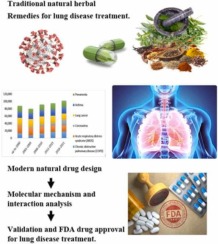In the fascinating tapestry of human physiology, there exists a hormone often dubbed the “fountain of youth.”
This is the growth hormone, an intricate molecule that wears many hats in our body, from cell regeneration to metabolic regulation. Its connection to our body’s aging process and weight management is an area of research that continues to intrigue medical professionals and health enthusiasts alike.
A Glimpse into Growth Hormone
Growth hormone, often referred to as the ‘master hormone’, is a peptide hormone produced by the anterior pituitary gland. Its influence extends to numerous aspects of our health and physiology.
3. Muscle Growth:
It stimulates both the growth and differentiation of muscle cells. Growth hormone boosts the uptake of amino acids into the muscle cells, promoting protein synthesis. This not only builds muscle tissue but also strengthens and maintains it.
4. Skin Vitality and Anti-Aging:
One of the reasons growth hormone is often linked to the ‘fountain of youth’ is its role in maintaining skin elasticity. It does this by promoting the synthesis of collagen, the primary structural protein in the skin. As we age and growth hormone levels decline, we may notice sagging skin and wrinkles, a result of decreased collagen production.
5. Bone Density: Growth hormone plays a role in maintaining and increasing bone density, reducing the risk of fractures and osteoporosis as we age.
6. Mood and Cognitive Function: Some research suggests that growth hormone can affect our mood and overall brain function. Adequate levels have been associated with better concentration, memory, and emotional well-being.
In essence, growth hormone acts as a cornerstone in the foundation of our health, touching various physiological processes and playing a role in how we feel, look, and think. Its decline with age underscores the importance of understanding and supporting its production throughout our lives.
The Aging Conundrum: Declining Growth Hormone
Aging, a natural and inevitable process, brings with it a myriad of physiological changes, one of the most notable being the reduction in growth hormone production. This decline doesn’t suddenly strike late in life; it’s a gradual process that often starts as early as our mid-twenties.
1.Why does this decline happen?
As we age, the pituitary gland, responsible for growth hormone production, becomes less responsive. Factors like changes in sleep patterns, increased fatty tissue, and other hormonal shifts can further dampen growth hormone secretion.
2. Muscle Mass Reduction:
One of the evident consequences of decreased growth hormone is the loss of muscle mass. This is not just about aesthetics; muscles play essential roles from metabolism regulation to maintaining posture and preventing injuries. Less growth hormone can mean weaker muscles, making everyday tasks more challenging and increasing the risk of falls in older adults.
3. Slower Metabolism and Weight Gain:
Growth hormone’s role in metabolism is pivotal. A decline can lead to a slower metabolic rate, meaning the body burns fewer calories at rest. This, coupled with other age-related changes, often results in weight gain, particularly around the abdominal area. This isn’t just about fitting into older clothes; excess weight carries health risks, from cardiovascular disease to diabetes.
4. Skin Changes:
Youthful skin is often a reflection of healthy collagen levels, which growth hormone supports. As growth hormone dwindles, so does collagen production, leading to thinner skin that’s less elastic. The result? More pronounced wrinkles, sagging, and dryness.
5. Diminished Energy Levels and Fatigue
Vitality and zest for life aren’t just about attitude; they’re also rooted in physiology. Growth hormone plays a part in sustaining energy levels. A decline can leave individuals feeling perpetually tired, even after a full night’s rest.
6. Mental Health Implications:
Beyond the physical, there’s evidence to suggest that declining growth hormone levels can impact our mental well-being. Feelings of anxiety, depression, and a reduced sense of well-being can accompany lower levels of this hormone.
7. Bone Health:
Lower growth hormone levels can lead to decreased bone density, increasing the risk of osteoporosis and fractures.
Understanding the nuanced roles and implications of declining growth hormone production gives us a clearer picture of the aging process. While it’s a natural part of life, there are strategies, interventions, and treatments available to manage and even counteract some of these effects, promoting healthier and more vibrant aging.
The Promise of CJC and Ipamorelin
In the expansive world of medical research, peptides have emerged as a promising avenue for various therapeutic interventions. Among them, CJC and Ipamorelin have gained significant attention, particularly in the realm of growth hormone optimization.
The evolution of peptide research, and in particular the combined use of CJC and Ipamorelin, opens a new chapter in the quest for optimizing health and longevity. It underscores the incredible advances in understanding how we can harness the body’s mechanisms to promote well-being and vitality.
This content was originally published here.




















